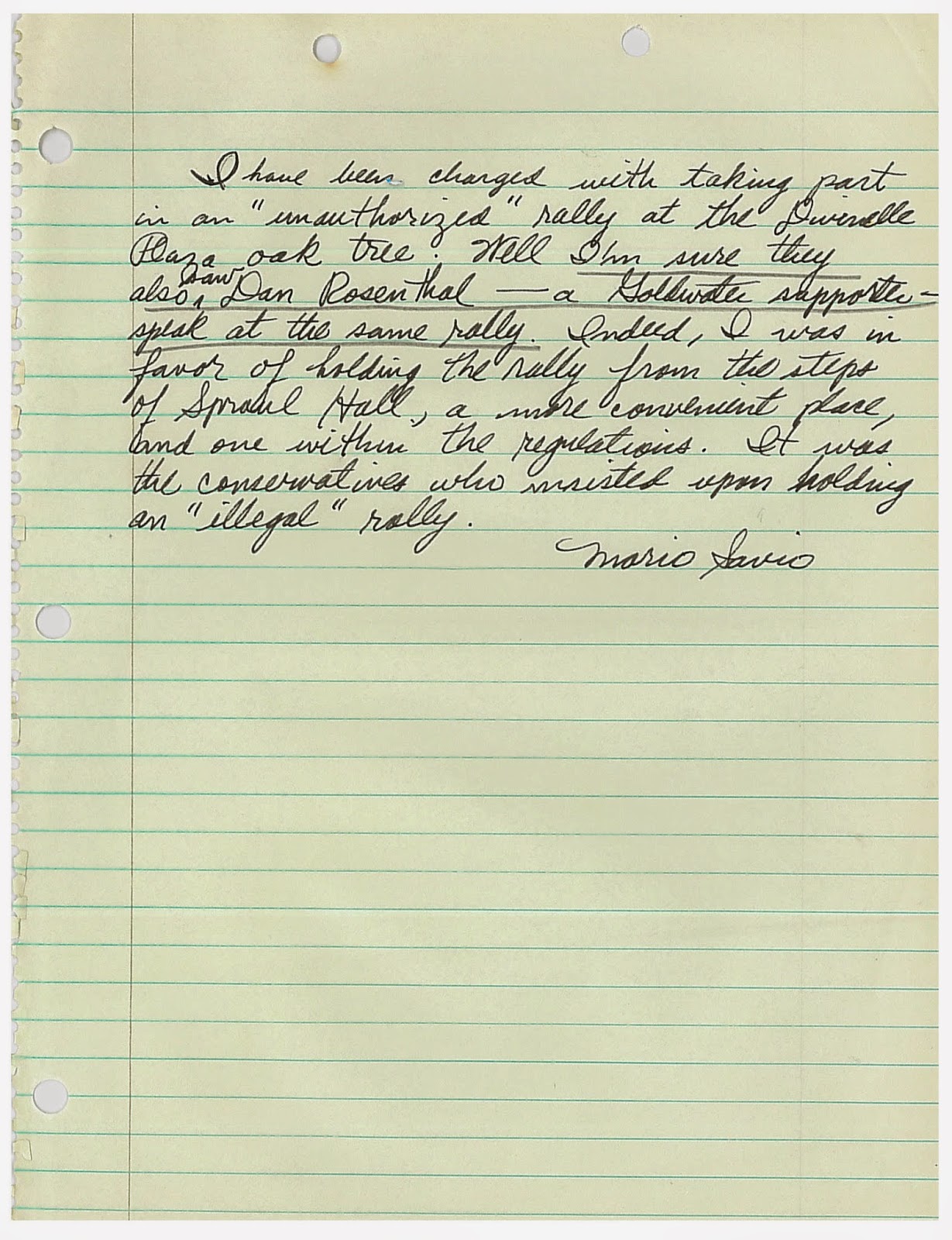In the fall of 1964,
on-campus political issues which had been brewing at UC Berkeley for at least
four years converged with national events in ways which would forever change
Berkeley and the nation.
Inspired by their participation
in Mississippi’s Freedom Summer of 1964, Mario Savio and other Berkeley
undergraduates sought to continue their civil rights activism on campus as the
Fall semester began, by setting up tables and handing out literature near the
entrance to the university and on Sproul Plaza, just off Telegraph Ave.
On Sept. 14, 1964, campus
administrators banned political activity from UC property, sparking swift
student protests. The most notable of the protests was a 32-hour standoff
October 1, at a police car parked on the Plaza which held student Jack Weinberg,
arrested for staffing a table on Sproul Plaza, and the historical mass arrest
of over 700 students at Sproul Hall on December 4.
The term “Free Speech
Movement” was coined early on in the protests, and would come to symbolize the
beginning of an era of protests over free speech, civil rights and the war in
Vietnam.
The accompanying undated note
by Savio, part of CHS’ ACLU Northern California collection, was likely written
during the fall of 1964, as university officials sought ways to prevent certain
student organizations from holding rallies and distributing literature, and
students sought paths around these new rules.
 |
| Mario Savio letter, undated, MS 3580, California Historical Society |
For more information on the Free Speech Movement see the Bancroft Library's chronology here.
Alison Moore
Reader Services Librarian

No comments:
Post a Comment